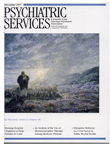The Perversion of Autonomy: The Proper Uses of Coercion and Constraint in a Liberal Society
Both American political philosophy and popular discourse about how society should function seem obsessed with autonomy. From a historical perspective, this preoccupation is hardly surprising. The United States developed as a distinct society in the late 18th century during the peak influence of the Enlightenment ideal of the rational man forming society by social contract. Individual rights and personal liberty play a much greater role in our society, and responsibility and social solidarity a much smaller role, than they do in even the highly democratic societies of Western Europe.
Like any other ideology, individualism creates both blessings and curses. The authors of this interesting volume—two of the leading bioethicists in America—are clearly aware of the importance of autonomy in protecting important political and religious freedoms. However, the core of their argument is that our obsession with autonomy has taken us to the edge of a precipice, and both civil order and personal civility are at risk of falling off. In our obsession with individual autonomy, we have forgotten common-sense morality.
Indeed the book begins with such evidence, the story of a homeless man who dies on the street across from a hospital because the ambulance staff decided that he had "refused medical attention" in spite of his brother's contention that he was delirious. An entire chapter is devoted to homelessness and deinstitutionalization of the mentally ill as another example.
Gaylin and Jennings do best discussing the ethics and political philosophy of autonomy. They make a convincing case that society needs social controls because, although lower animals' social functioning depends on a mixture of instinct and fear, human beings' prosocial behaviors rely on shame and guilt as well as fear. Yet if we treat all human beings as deserving of autonomy and dignity even when their behaviors violate the law or basic social decency, these mechanisms become unavailable. If we cannot use shame and guilt as devices of social control, fear will become society's only means of controlling its members' behaviors.
The authors are equally persuasive in showing the absurdity of the classical autonomy assumptions that humans are basically rational and self-directing. They draw from psychoanalytic and behavioristic psychology to show the limitations of our rationality. They demonstrate how our beliefs in rationality and self-control lead to using education as a response to social problems.
Thus instead of shutting down gay bathhouses in the face of the AIDS epidemic, public health officials tried to educate people in the use of condoms. Instead of restricting children's access to cigarettes, we try to educate them about the health effects. We continually try educational solutions in spite of a long history of failures.
Gaylin and Jennings' analysis of the state of American society is less persuasive. For example, they cite as evidence that America is on the edge of disintegration the large number of recent books that suggest serious moral decay and loss of direction in this country. However, such jeremiads have been frequent and persistent from the middle of the 17th century. They are hardly strong evidence that we are now in a unique situation.
The authors also blame the autonomy-based deinstitutionalization of mental patients for homelessness, but they ignore that large-scale homelessness is a phenomenon of the eighties and nineties, whereas most deinstitutionalization took place in the fifties, sixties, and seventies. They also overlook that cities in which land prices did not skyrocket in the eighties have little homelessness.
Although in places pop sociology weakens the presentation in The Perversion of Autonomy, the authors present a strong case that we need to refocus our political thought and broaden our goals beyond promoting individual autonomy.
Dr. Lidz is research professor in the department of psychiatry of the University of Massachusetts Medical Center in Worcester.



